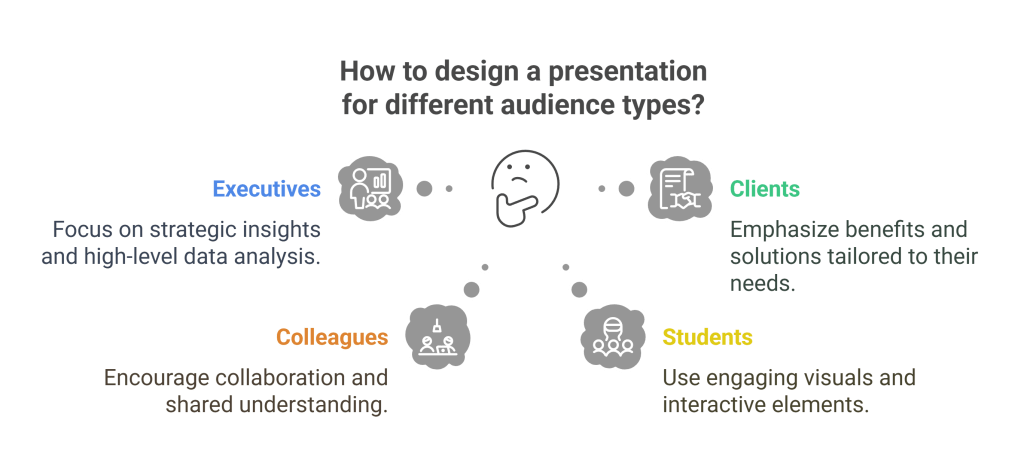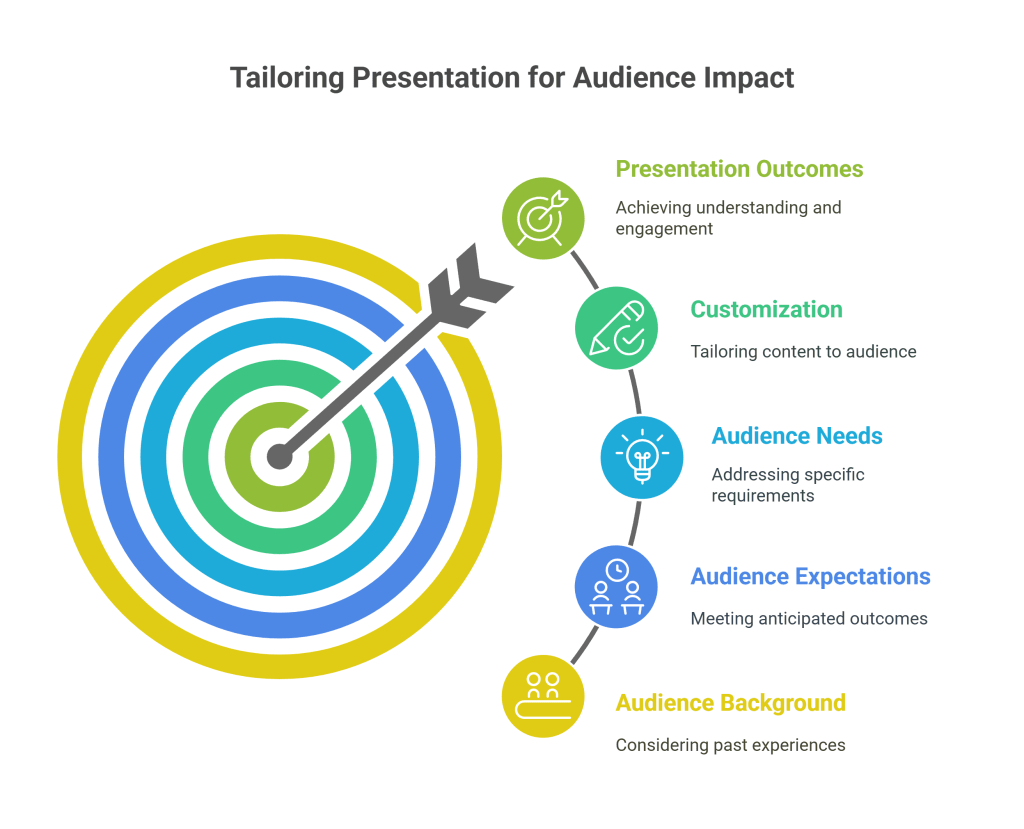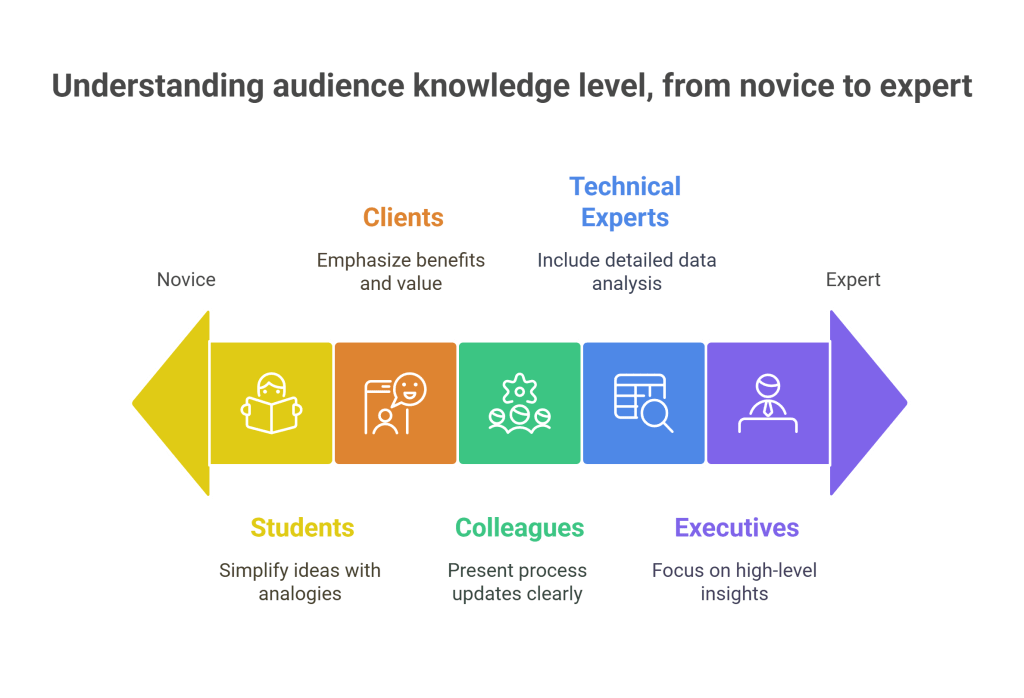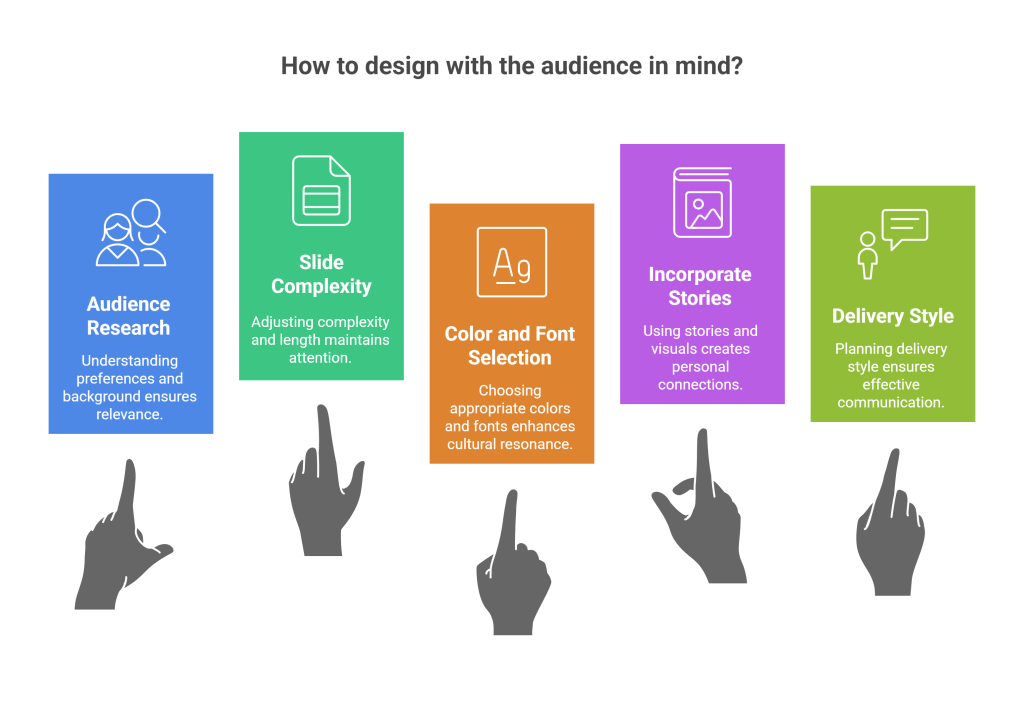How to Design Presentations
for Different Audience Types
How to Design Presentations for Different Audience Types
No two audiences are alike. Designing a presentation that resonates deeply requires understanding who you’re speaking to and tailoring your content, style, and delivery accordingly. Whether you’re addressing executives, clients, colleagues, or students, a one-size-fits-all approach rarely works.

Why Tailoring Your Presentation Matters
An audience’s background, expectations, and needs influence how they receive your message. Presentations customized to their interests and knowledge level lead to better understanding, engagement, and outcomes.

Common Audience Types and Design Tips
Executives and Decision Makers
Focus on high-level insights and ROI.
Use concise slides with clear visuals.
Highlight key takeaways early.
Technical Experts
Clients or Customers
Emphasize benefits and value propositions.
Use relatable stories and testimonials.
Keep jargon minimal and language clear.
Colleagues or Internal Teams
Foster collaboration with interactive elements.
Present process updates or training material clearly.
Allow space for Q&A or discussion.
Students or General Public
Simplify complex ideas using analogies or metaphors.
Use engaging visuals and examples.
Keep the tone friendly and approachable.

Tips for Designing with Your Audience in Mind
Research your audience’s preferences and background.
Adjust slide complexity and length based on attention spans.
Choose colors and fonts that suit the audience’s culture and context.
Incorporate stories, examples, and visuals that resonate personally.
Plan your delivery style (formal, conversational, interactive) accordingly.

Final Thoughts
Understanding your audience is the foundation of effective presentation design. Tailoring your slides and messaging to fit their unique needs transforms a simple presentation into a powerful communication tool. At A1 Slides, we specialize in crafting audience-focused presentations that connect, persuade, and inspire.





